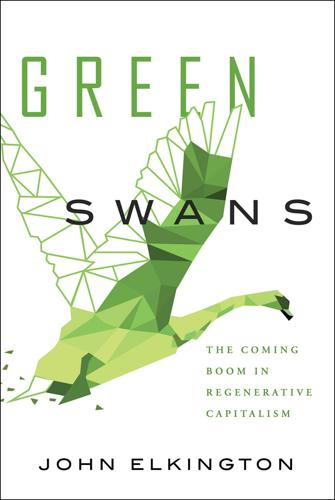
Green Swans: The Coming Boom in Regenerative Capitalism
by
John Elkington
Published 6 Apr 2020
—James Cameron, Chairman of the Overseas Development Institute, Founder of Climate Change Capital, and a former member of the UK Prime Minister’s Business Advisory Board “The best leaders are willing to give up what is no longer working and commit to what is needed to succeed in a new, completely changed operating environment. When John Elkington issued a ‘product recall’ for his groundbreaking concept of the ‘triple bottom line,’ it was because he is that type of leader. If you want to be a leader that meets the demands of the 21st century, read Green Swans, and then become one.” —Jay Coen Gilbert, Co-Founder of B Lab, the organization behind the B Corporation movement “John Elkington is one of the true pioneers in the sustainability movement and has made a real contribution to the way business thinks about its role in the world.
…
—Nicholas Haan, Faculty Chair, Global Grand Challenges, Singularity University “Capitalism is entering a new phase, as companies and investors acknowledge the need to address the interests of a fuller range of stakeholders. John Elkington, one of the pioneers of the sustainability movement, is a great guide to the changes under way. His critique is clear-eyed, but his underlying optimism about Green Swan solutions is inspiring.” —Adi Ignatius, Editor-in-Chief, Harvard Business Review “Welcome to the new renaissance. John Elkington does not fall into the trap of painting a dystopian nightmare scenario that leaves us without hope. Instead, Green Swans makes us believe in miracles.
…
—Lise Kingo, CEO & Executive Director, United Nations Global Compact, the world’s biggest sustainable business platform “Our economy urgently needs re-orienting in a green direction, with governments, businesses and civil society taking on—together—ambitious green missions. John Elkington’s Green Swans, paradigm-shifting innovation breakthroughs, point the way to this brighter future.” —Mariana Mazzucato, Professor in Economics of Innovation and Public Value at University College London and Founder/Director of the UCL Institute for Innovation and Public Purpose. Author of The Entrepreneurial State and The Value of Everything “Japan is one of the most unsustainable advanced nations, with demographic, economic, and environmental challenges. John Elkington explains that all such countries now need to create new generations of Green Swan solutions, driving transformation and regeneration.

The new village green: living light, living local, living large
by
Stephen Morris
Published 1 Sep 2007
As Wendell Berry so cogently puts it: we pass through the environment and the environment passes through us.The salmon feeds the bears, the bears feed the forest, the forest feeds the salmon.The Whole is a miracle beyond understanding.” — Chellis Glendinning Author, Off the Map: An expedition deep into Empire and the Global Economy “ Jim Lovelock’s Gaia Hypothesis helped us see the Earth as an integrated system which supports life, for the moment, but has no particular investment in humankind. — John Elkington Author, Cannibals With Forks: The Triple Bottom Line of 21st Century Business “ James Lovelock’s Gaia Hypothesis has provided a crucial way of understanding the earth as a living, self-regulating being that gives a scientific and intellectual substructure to environmentalism and shows all who will think about it the only way humans can successfully live on the only living planet in the known universe
…
Dwellers in the Land: The Bioregional Vision, by Kirkpatrick Sale. New Society Publishers, 1991. The Great Turning: From Empire to Earth Community, by David Korten. Berett-Koehler, 2006. When Corporations Rule the World, by David Korten. Kumarian Press, 1996. Cannibals with Forks: The Triple Bottom Line of 21st Century Business, by John Elkington. New Society Publishers, 1998. My Name Is Chellis and I’m in Recovery from Western Civilization, by Chellis Glendinning. Shambhala, 1994. The Bible The NEW VILLAGE GREEN 27 2 SILENT SPRING Siphonophore “ The more clearly we can focus our attention on the wonders and realities of the universe around us, the less taste we shall have for destruction.” — Rachel Carson 28 T he Roaring Twenties were followed by the Great Depression of the 1930s.Then came the decade of The Greatest Generation, followed by the decade when Everything Went Right, and inevitably, the 1960s when Everything Went Wrong.
…
” — Bill Mares Teacher in Burlington, Vermont and author of Bees Besieged and other books “ The Industrial Revolution is the most important cultural event to shape our current world view. We broke into Nature's safe deposit box of fossil carbon, turning it into a wider range of fuels, and potentially destabilizing the global climate in the process.” — John Elkington Author, Cannibals With Forks: The Triple Bottom Line of 21st Century Business “ The world unhinging before our eyes is a huge cultural event that is shaping our current world view. In my case, I’ve seen Vermont winters go from ‘lion to pussycat’ in a mere 25 years! We used to get winters propelled by frigid temperatures and huge amounts of snow, starting in November.These days the salt truck is much more needed than the snowplow and our maple seasons have become a complete ‘nail-chewer’—gotta have freezin’ nights for sugarin’ to happen.
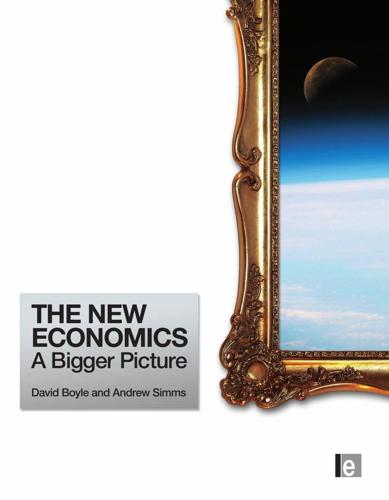
The New Economics: A Bigger Picture
by
David Boyle
and
Andrew Simms
Published 14 Jun 2009
He contacted James Robertson and his partner Alison Pritchard, coordinator of the Turning Point network, and together they hammered together a committee which met in Jonathon’s flat, around the corner from King’s Cross Station in London. The steering committee included many names that were going to become familiar as the sustainability debate took hold – especially after Mrs Thatcher’s surprise declaration three years later, under the influence of Prince Charles, that she was a ‘friend of the earth’: David Cadman, John Elkington, Liz Hosken, Gerard Morgan-Grenville, Duncan Smith, Jakob von Uexkull and Paul Ekins. The result was The Other Economic Summit (TOES), which brought together a diverse mixture of environmentalists, radical economists, futurists, mystics and community activists.11 The three-day event attracted more than 140 people, and launched with a rally at Friends House on the Euston Road, chaired – rather unexpectedly – by the former British Ambassador to Washington and future BBC economics correspondent Peter Jay.
…
David Boyle and Andrew Simms (ed) (2003) News from Somewhere: 20 Years of the New Economics Foundation, New Economics Foundation, London. Paul Ekins (1986) The Living Economy, Routledge, London. David Boyle and Andrew Simms (ed) (2003) News from Somewhere: 20 Years of the New Economics Foundation, New Economics Foundation, London. Paul Ekins (1986) The Living Economy, Routledge, London. John Elkington and Julia Hailes (1988) The Green Consumer Guide, Gollancz, London. For Grameen Bank see www.grameen-info.org David Boyle (2003) Authenticity: Brands, Fakes, Spin and the Lust for Real Life, HarperCollins, London. James Carville and Mary Matalin (1994) All’s Fair: Love, War and Running for President, Simon & Schuster, New York.
…
SROI is an impact measurement tool that helps any organization define the relationship between its inputs, outputs and outcomes in terms of the value to each stakeholder group, and then provides a way to put a money value on them.18 It allows investors to look at the real effect of their investment beyond the simple bottom line. Other books to read Richard Douthwaite (1992) The Growth Illusion, Green Books, Totnes John Elkington (1999) Cannibals with Forks, Capstone, London Clive Hamilton (2003) The Growth Fetish, Allen & Unwin, London Oliver James (2007) Affluenza, Vermilion, London Richard Layard (2005) Happiness: Lessons from a New Science, Penguin, London Alex Macgillivray, Candy Weston and Catherine Unsworth (1998) Communities Count!
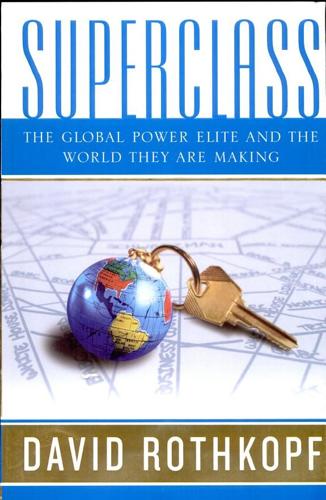
Superclass: The Global Power Elite and the World They Are Making
by
David Rothkopf
Published 18 Mar 2008
Lynch, “As World Bank Controversy Unfolds, Turmoil Takes Its Toll,” USA Today, May 16, 2007. 169 “All the multilateral development banks” Luis Moreno, interview with the author, 2006. 169 “I don’t write off institutions” James Wolfensohn, interview with the author, October 2006. 170 Kishore Mahbubani, former Singaporean ambassador Kishore Mahbubani, interview with the author, November 2006. 174 Geithner acknowledged that a significant portion Timothy Geithner, interview with the author, 2006. 176 Richard Darman, senior adviser at the Carlyle Group Richard Darman, interview with the author, 2006. 177 John Elkington, coauthor of a study Seb Bekoe, John Elkington, et al., “The 21st Century NGO: In the Market for Change,” SustainAbility, 2. 177 The relevance of this group Daniel C. Esty and Andrew S. Winston, Green to Gold: How Smart Companies Use Environmental Strategy to Innovate, Create Value, and Build Competitive Advantage (New Haven: Yale University Press, 2006), 68. 178 WWF has also run afoul of critics Jon Swan, “Green Image, Grim Reality,” World Rivers Review, vol. 18, no. 1, February 2003, 1. 178 Similar attacks have focused on relations John Vidal, “WWF in the Dock Over Island Quarry Deal with French Firm,” Guardian, February 7, 2003.
…
So how its suppliers farm their land, whether they do it in an environmentally sustainable way, is a huge issue. I mean, that is global governance the way it is done in the world today.” Today estimates suggest that NGOs worldwide have total turnover in excess of $1 trillion a year, making them a force to be reckoned with. John Elkington, coauthor of a study on NGOs published by Sustain-Ability, says that amount is augmented by levels of public trust surpassing that of governments and business and that as a consequence, NGOs might evolve into “among the most influential institutions of the twenty-first century.” The relevance of this group as part of a continuum of policy makers and influencers is highlighted in the environmental arena in Daniel Esty and Andrew Winston’s Green to Gold: How Smart Companies Use Environmental Strategy to Innovate, Create Value, and Build Competitive Advantage, in which they write: Today, the governmental role is changing … as rule-makers and watchdogs expand both vertically and horizontally.
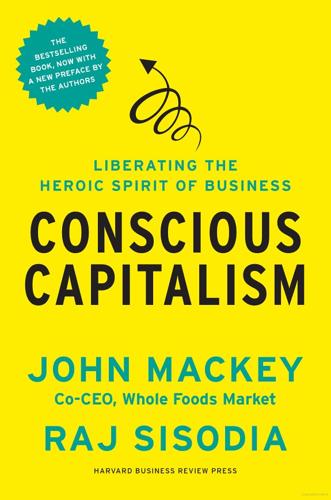
Conscious Capitalism, With a New Preface by the Authors: Liberating the Heroic Spirit of Business
by
John Mackey
,
Rajendra Sisodia
and
Bill George
Published 7 Jan 2014
We therefore see no contradiction between Conscious Capitalism and natural capitalism. Conscious Capitalism includes the valuable insights that natural capitalism offers about the environment and transcends them with a more comprehensive view of the entire business and economic system. Triple Bottom Line John Elkington, the founder of a British consulting company called SustainAbility, coined the phrase triple bottom line (TBL) in 1994.2 The three bottom lines he wanted companies to pay attention to are people, planet, and profit. Elkington called for tracking financial, social, and environmental performance over time.
…
We are grateful to Doug Levy, CEO of MEplusYOU, for his suggestions on this subject. 18. We thank Doug Levy for this example. Appendix B 1. Paul Hawken, Amory B. Lovins, and L. Hunter Lovins, Natural Capitalism: Creating the Next Industrial Revolution (New York: Back Bay Books, 2008). 2. John Elkington, Cannibals with Forks: The Triple Bottom Line of 21st Century Business (Gabriola Island, B.C., and Stony Creek, Conn.: New Society Publishers, 1998). 3. Andrew W. Savitz, The Triple Bottom Line: How Today’s Best-Run Companies Are Achieving Economic, Social, and Environmental Success—and How You Can Too (San Francisco: Jossey-Bass, 2006). 4.
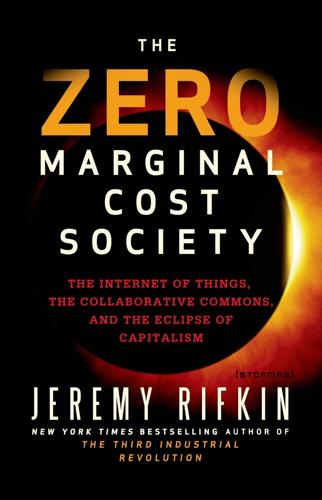
The Zero Marginal Cost Society: The Internet of Things, the Collaborative Commons, and the Eclipse of Capitalism
by
Jeremy Rifkin
Published 31 Mar 2014
Their enthusiasm translated into a new career path, at least for a significant minority. Social entrepreneurship was born. Defining social entrepreneurialism can be a slippery business. While profit-making enterprises emphasize what they call the triple bottom line of “people, planet, and profit,” a term coined by John Elkington in 1994, nonprofit organizations prefer “people and planet before profit.”31 An in-depth survey of 80 social entrepreneurs, from both the profit and nonprofit sectors, highlights some of the subtle differences in how they approach the same set of circumstances. To begin with, the profit-making social entrepreneurs are motivated by the prospect of commercial opportunity, while the nonprofit social entrepreneurs are more focused on addressing unmet social needs.
…
Hugo Martin, “Outdoor Retailer Patagonia Puts Environment Ahead of Sales Growth,” Los Angeles Times, May 24, 2012, http://articles.latimes.com/2012/may/24/business/la-fi-patagonia -20120525 (accessed February 27, 2013). 30. “What are B Corps?—Legislation,” B Corporation, April 18, 2013, http://www.bcorporation .net/what-are-b-corps/legislation (accessed April 18, 2013). 31. John Elkington, “From the Triple Bottom Line to Zero,” JohnElkington.com, http://www .johnelkington.com/activities/ideas.asp (accessed March 4, 2013). 32. Eleanor Shaw and Sara Carter, “Social Entrepreneurship: Theoretical Antecedents and Empirical Analysis of Entrepreneurial Processes and Outcomes,” Journal of Small Business and Enterprise Development 14(3) (2007): 418–34, http://www.emeraldinsight.com/journals.htm?
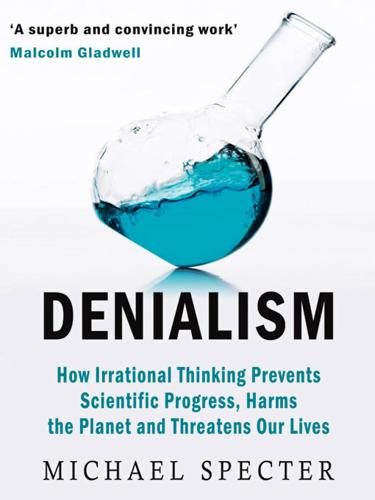
Denialism: How Irrational Thinking Hinders Scientific Progress, Harms the Planet, and Threatens Our Lives
by
Michael Specter
Published 14 Apr 2009
I was aided greatly early in the project by a lengthy discussion with Juan Enriquez—a man who knows denialism when he sees it and has rejected it with singular eloquence. I would also like to thank: Linda Avey, Esteban Gonzalez Burchard, Art Caplan, Rob Carlson, Joe Cerrell, George Church, June Cohen, John Elkington, Drew Endy, Ed Farmer, Tony Fauci, Jay Keasling, C. Everett Koop, Marie McCormick, Brian Naughton, Marion Nestle, Paul Offit, Neil Risch, Paul Saffo, Robert Shapiro, Eric Topol, Kari Stefansson and Eckard Wimmer. Thousands of words of thanks have already been written on behalf of my friend and agent, Amanda Urban.
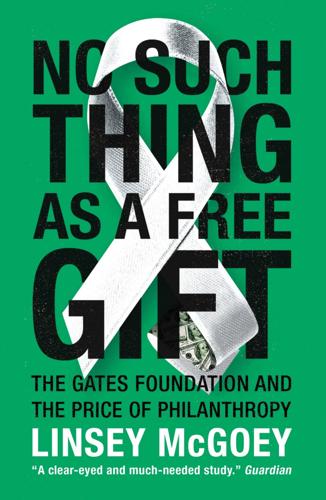
No Such Thing as a Free Gift: The Gates Foundation and the Price of Philanthropy
by
Linsey McGoey
Published 14 Apr 2015
The consequences of this shift have left many early enthusiasts querying whether their objectives are compromised the more the field is commercialized. If the definition above seems a little general and broad, that’s because the phenomenon is general and broad: there’s no particular aspect of the concept that distinguishes it from earlier efforts to use innovative ideas or methods to create social change. Take a description from John Elkington and Pamela Hartigan, two well-regarded proponents of the concept. In a recent book, they suggest ‘there is no standard-issue entrepreneur, but there is a consensus on what entrepreneurs do. Through the practical exploitation of new ideas, they establish new ventures to deliver goods and services not currently supplied by existing markets’.7 What sets the ‘social’ entrepreneur apart from more traditional ones is an emphasis on motivation.
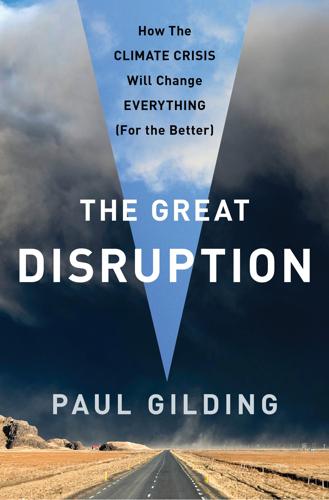
The Great Disruption: Why the Climate Crisis Will Bring on the End of Shopping and the Birth of a New World
by
Paul Gilding
Published 28 Mar 2011
However, we recognized that our clients’ bills had to be paid, along with a reasonable return on capital. This wasn’t a casual afterthought, an “oh yes, you need to make money”; it was central to our work. Around this time, the focus in corporate responsibility was on the “triple bottom line,” a phrase coined by my good friend and one of the world’s outstanding corporate sustainability pioneers John Elkington, founder of the U.K. firm SustainAbility. It meant that companies should deliver and report on social and environmental performance as well as profits. In contrast, we centered our strategic advice on what we called “single bottom line sustainability,” meaning that the pursuit of profit, without which no company can succeed, and the pursuit of sustainability should be a single mission, not separate, parallel efforts.
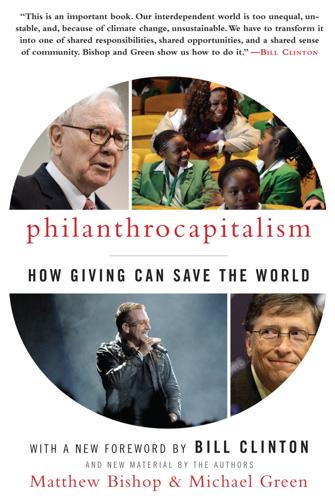
Philanthrocapitalism
by
Matthew Bishop
,
Michael Green
and
Bill Clinton
Published 29 Sep 2008
Although the list is too long to include everyone who has given us their valuable time and insights, it includes Patty Stonesifer, Larry Brilliant, Kurt Hoffman, Mary Robinson, Joel Klein, David Blood, Muhammad Yunus, Tom Vander Ark, Bobby Shriver, Steve Gunderson, Judith Rodin, Trevor Nielson, Jamie Drummond, Melissa Berman, Doug Bauer, Diana Aviv, Andrew Hind, Adam Meyerson, Jeffrey Sachs, Amir Dossal, Peter Singer, Linda Rottenberg, Peter Kellner, Hernando de Soto, Diana Leat, Phil Buchanan, Carlos Danel, Bill Drayton, William Zabel, Paul Schervish, Lester Salomon, Joan Di Furia, Vartan Gregorian, Luc Tayart de Borms, Sam Jonah, Volker Then, David Green, David Carrington, Pamela Hartigan, John Elkington, Geoff Mulgan, Rowena Young, Larry Mone, Lael Brainerd, Alex Nicholls, Rob John, Fritz Mayer, Robert Dufton, Carl Schramm, Etienne Eichenberger, Felicitas von Peter, Charles MacCormack, Thomas Tierney, Bruce Lindsay, Michael E. Porter, Mark Kramer, Katherine Fulton, John Bryant, Charles Handy, Teresa Lloyd, Andras Szanto, Mabel van Oranje, Caroline Casey, Karim Kawar, Greg Dees, Bunker Roy, Ira Magaziner, Rick Beckett, John Needham, Brizio Biondi Morra, Jane Wales, Sally Osberg, Thomas Eymond-Laritaz, Jacqueline Novogratz, Vanessa Kirsch, George Overholser, Clara Miller, Jeroo Billimoria, Nick Moon, Martin Fisher, Nancy Lublin, Bruce McNamer, John Wood, Martin Brookes, Maximilian Martin, Nigel Harris, Ian Davis, Lynn Taliento, and Mikhail Saakashvili.
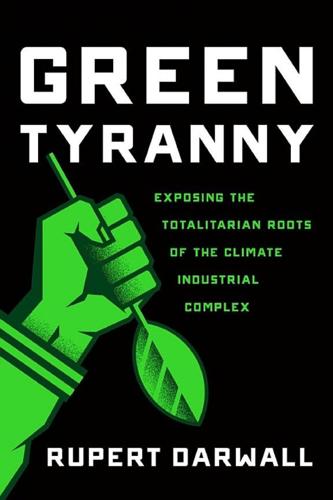
Green Tyranny: Exposing the Totalitarian Roots of the Climate Industrial Complex
by
Rupert Darwall
Published 2 Oct 2017
., p. 24. 23https://twitter.com/jeremyleggett/status/406691588950073344 (accessed October 28, 2015). 24Tessa Kipping, “Jeremy Leggett: It’s Flattering When People Dismiss Solar Power,” BusinessGreen, December 16, 2013, http://www.businessgreen.com/bg/interview/2318947/jeremy-leggett-its-flattering-when-people-dismiss-solar-power (accessed October 28, 2015). 25Florian Diekmann, “Kostenexplosion bei Strom, Öl, Gas: Energiearmut in Deutschland nimmt drastisch zu,” (“Cost explosion in electricity, oil, gas: energy poverty in Germany increases dramatically”), Spiegelonline, February 24, 2014, http://www.spiegel.de/wirtschaft/service/gruenen-anfrage-energiearmut-in-deutschland-nimmt-drastisch-zu-a-954688.html (accessed October 28, 2015). 26Spiegelonline, “Germany’s Energy Poverty: How Electricity Became a Luxury Good,” April 9, 2013, http://www.spiegel.de/international/germany/high-costs-and-errors-of-german-transition-to-renewable-energy-a-920288.html (accessed October 28, 2015). 27Alexander Wendt, Der Grüne Blackout; Warum die Energiewende Nicht Functionieren Kann (The Green Blackout: Why the Energiewende Cannot Work) (Munich, 2014), p. 4. 28Alexander Wendt email to author, November 6, 2015. 29Seb Beloe, John Elkington, Katie Fry Hester, and Sue Newell, The 21st Century NGO: In the Market for Change (London, 2003), p. 2. 30Richard Edelman, “Rebuilding Public Trust through Accountability and Responsibility: Address to the Ethical Corporation Magazine Conference,” New York, October 3, 2002, Slide 12. 31Ibid., Slide 11. 32Robert Mendick and Edward Malnick, “European Union Funding £90m Green Lobbying Con,” www.telegraph.co.uk, December 21, 2013, http://www.telegraph.co.uk/news/worldnews/europe/10532853/European-Union-funding-90m-green-lobbying-con.html (accessed October 28, 2015). 33Green 10, http://www.green10.org/about-us/ (accessed October 28, 2015). 34Green 10, http://www.green10.org/publications/ (accessed October 28, 2015). 35Financial data from EU Transparency Register accessed via link for each NGO at bottom, http://www.green10.org/about-us/ (accessed October 28, 2015). 36Emily Gosden, “Greenpeace Executive Flies 250 Miles to Work,” www.telegraph.co.uk, June 23, 2014, http://www.telegraph.co.uk/news/earth/earthnews/10920198/Greenpeace-executive-flies-250-miles-to-work.html. 37WWF, “We Must Save the World’s Wild Life: An International Declaration,” (The Morges Manifesto) April 29, 1961 accessed via http://wwf.panda.org/who_we_are/history/sixties/ (accessed November 2, 2015). 38Clive Hambler, “Wind Farms vs.
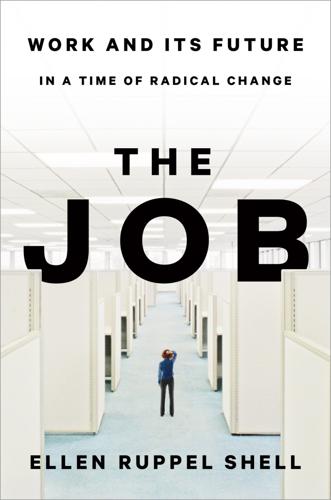
The Job: The Future of Work in the Modern Era
by
Ellen Ruppel Shell
Published 22 Oct 2018
promoted tax hikes to support them Ganesh Sitaraman, The Crisis of the Middle-Class Constitution: Why Income Inequality Threatens Our Republic (New York: Knopf, 2017), 202. “Society is demanding that companies” “A Sense of Purpose,” Larry Fink’s Annual Letter to CEOs, BlackRock (2017), https://www.blackrock.com/corporate/investor-relations/larry-fink-ceo-letter. the “triple bottom line” See, for example, John Elkington, Cannibals with Forks: The Triple Bottom Line of 21st Century Business (Oxford: Capstone, 1997). the concept of “shareholder primacy” The primacy of shareholders above other stakeholders was more recently reaffirmed by the case of EBay Domestic Holdings Inc. v. Newmark, H2O Classroom Tools, last modified February 24, 2014, https://h2o.law.harvard.edu/cases/3472, in which the Delaware Chancery Court stated that a nonfinancial mission that “seeks not to maximize the economic value of a for-profit Delaware corporation for the benefit of its stockholders” is inconsistent with directors’ fiduciary duties.
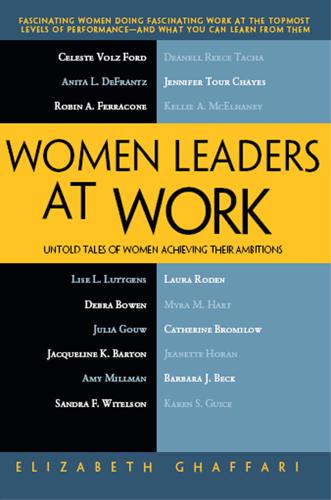
Women Leaders at Work: Untold Tales of Women Achieving Their Ambitions
by
Elizabeth Ghaffari
Published 5 Dec 2011
That’s how I began doing much more administrative work inside of the university and just a little teaching—one course in business communication. Somehow, on the side, I was studying ferociously the emerging world of sustainable development, which was much bigger in Europe at the time. I focused on the work of Stuart Hart and John Elkington. There were other pioneers who were really starting to bring all this together—Hunter Lovins and Amory Lovins—those on the vanguard of natural capitalism, “the next industrial revolution.” I wondered to myself, “Could I put a course together that would merge all of these ideas to help us understand ways in which we could harness the power of the corporation to make the world a better place?”
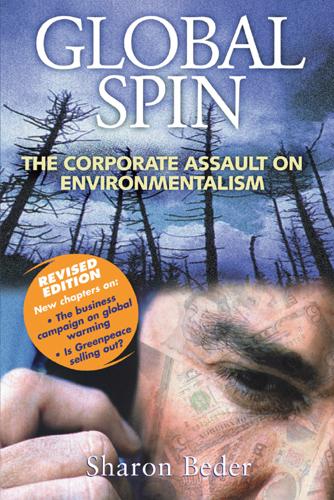
Global Spin: The Corporate Assault on Environmentalism
by
Sharon Beder
Published 1 Jan 1997
The philosophy that Greenpeace espouses today contrasts markedly with positions that it took in the early 1990s, when ‘green marketing’ first emerged as part of a strategy that the PR industry calls ‘cause-related marketing’. A series of media reports and books, such as The Green Consumer Guide by John Elkington and Julia Hales, gave the impression that the environment could be saved if individuals changed their shopping habits and bought environmentally sound products. There was a surge of advertisements claiming environmental benefits, and green imagery became a symbol used to sell products. When green marketing first emerged, it came under criticism from a number of Greenpeace campaigners, as noted in Chapter Eleven.